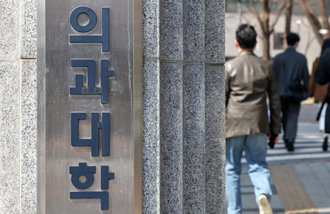Totalitarian States Adopt Scare Tactics to Repress Netizens
Totalitarian States Adopt Scare Tactics to Repress Netizens
Posted April. 07, 2008 05:49,
Along with the evolution of the Internet, methods to monitor improper information on the Web have also been evolving.
With the era of Web 2.0 ushered in, where consumers produce, distribute and consume contents on their own, authoritarian regimes have developed Internet monitoring systems to counter the new trends, heralding their own age of Repression 2.0, reported U.S. weekly magazine Newsweek in its latest issue.
▽ From censorship to interference
In the time of Web 1.0 represented with portals and searching, information was controlled by content providers, and netizens only consumed the information. Surveillance methods were also straightforward. The authorities banned access to indecent sites and controlled some keywords.
However, in the age of Web 2.0 featuring user-created contents (UCC) and online communities, screening out all the contents has become a virtually impossible task. In this situation, despotic regimes showed their ingenuity by making their presence on the Web, threatening Internet users directly.
Jingjing and Chacha, avatars created by Chinas security apparatus, make a sudden appearance on Web pages and issue warnings saying, Abide by laws and regulations for a sound online environment.
The Chinese government has recently sent out massive text messages urging to maintain law and order to cell phone users in the Tibetan capital of Lhasa where violent clashes between police and Tibetan protesters recently broke out. Tibetans who were about to join anti-government protests were taken aback by the threat of We are always watching you.
▽ Attempt to create a 21st century panopticon
Whether or not the government can effectively censor the Internet is not important. Instilling netizens with a sense that you are closely watched at any time does the trick. Fear spreads as fast as information does.
Random shutdowns also work. Suddenly, e-mail messages stop coming and access to searched sites are prohibited. Though those randomly selected e-mail accounts and sites are temporarily shut down, users have no idea whether it is due censorship or it is a pure coincidence.
Sometimes, pro-government advertisements spread on the Web and dissidents are being attacked by vicious slander. Cairo blogger Wael Abbas, who has stood up against Egyptian President Hosni Mubarak, has recently been dogged by malicious criticisms that he has changed his faith three times and that he is homosexual. He pointed the finger at the government for spreading those rumors, saying, In a conservative society like Egypt, those criticisms are deadly. I believe the government is behind the rumors but I have no proof.
Autocratic regimes are now preparing the Repression 3.0 era by utilizing data mining techniques which screen out future risk factors through analyzing the behavioral patterns of countless Internet users. The U.S. government once tried this technique in the wake of the 9/11 terrorist attacks but abandoned it, faced with the growing controversy over privacy infringement, said Newsweek. But it is highly likely to emerge as next generation surveillance method for repressive regimes, the magazine wrote.
redfoot@donga.com
Headline News
- Ruling, opposition parties to set up their election committees
- Financial authorities set to support auto industry
- LG's Arizona plant to produce cylindrical batteries from next year
- Yoon removed from office by unanimous court decision
- Constitutional Court mentions responsibility of both Yoon and National Assembly







